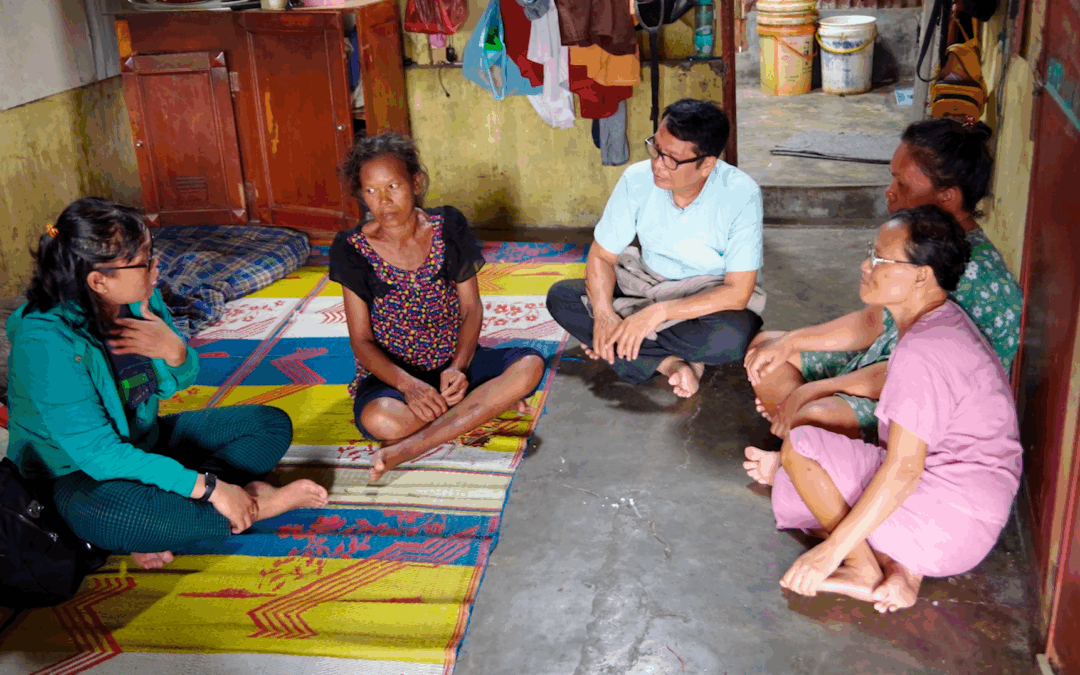
Indonesia: spreading hope
Enable subtitles and select your preferred language.

Enable subtitles and select your preferred language.
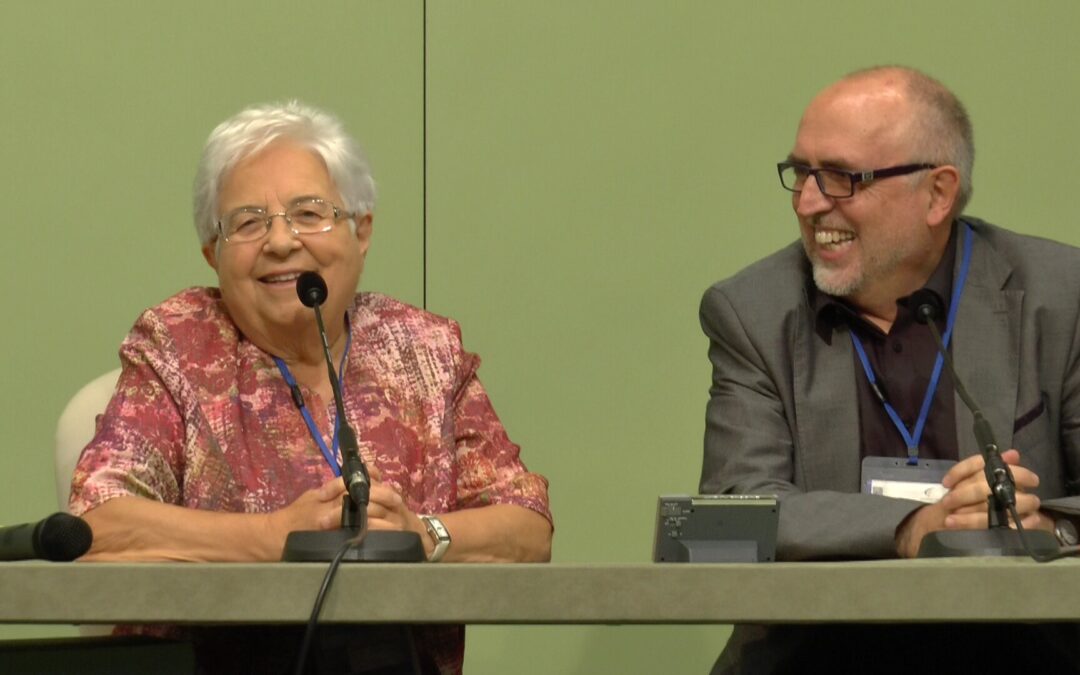
The first General Assembly of the Focolare Movement without the foundress was held in July 2008. In fact, Chiara Lubich had died a few months earlier, on the 14th of March. An air of uncertainty hung over the already emotional and question-filled atmosphere as to who should succeed Chiara in leading the Movement. It seemed obvious to think of Chiara’s first companions, now elderly, but at least some of them were still capable of leading this first post-foundation phase.
During the first session of the Assembly, there was a talk from a legal perspective on a topic relevant to the Assembly given by Carlos Clariá, an Argentinian lawyer and general councillor, and Maria Voce, for many years secretary to the central delegate Gisella Cagliari. I remember that I was sitting next to the well-known theologian Piero Coda. When they concluded their talk, I told him rather boldly: “Here is our new president”. The truth was that the way she had explained things had impressed me greatly.
Maria Voce (Emmaus) was elected on the third ballot, not without a certain “suspense”. A new stage was beginning for the Work of Mary and I, too, was elected as a councillor.
One afternoon, after the elections, as we were leaving the Mariapolis Centre in Castelgandolfo, Emmaus approached me and said more or less these words: “I thought of entrusting you with the aspect of studies and culture in the new council. You are a man of thought, and I always liked the annual reports you wrote when you were responsible for a region in Latin America.” During the following six years, my relationship with her was very simple.
At the 2014 Assembly, Emmaus was re-elected, and the participants placed their trust in me as Co-President. Since then, our relationship has strengthened enormously, without losing its simplicity. I remember that in the beginning I felt a certain apprehension at the idea of having to work side by side with a president who belonged to the generation immediately following the first one, but this feeling was short-lived. I always perceived great respect and appreciation from her, which gave me a lot of freedom. I would arrive with a bunch of new ideas, and she would support me with her wisdom and experience. In our joint presentations we would prepare the essentials together and would complement each other in a simple way. I once told her, “As opposed to what you might think, I only feel confident in expressing some creative ideas when you are by my side.” We made long and important visits to India and China, where I witnessed her ability to penetrate the most intricate situations and relate to very different key personalities.
Maria Voce, Emmaus, will go down in the history of the Focolare Movement as the first president of the post-Chiara Lubich era. If we think that when she took up her role, many of Chiara’s first companions were still alive. We can understand the “spiritual resilience” with which she carried out her work in those early years; not because they were difficult people, but simply because they were the first ones, the arms of the foundress, people who in some way had been part of the founding charism.
Emmaus will go down in the history of the Focolare Movement for having been the president of the “new set-up”, the first innovative-organisational step of the Movement in the post-Chiara era, in creative faithfulness to the charism. In her first mandate, while Chiara’s absence was felt and could have caused discouragement, Emmaus travelled the world to strengthen the members and adherents of the Focolare communities in their commitment to a more fraternal and united world – in line with the charism of the foundress. In her second mandate, she began to prepare the Movement for the inevitable “crisis” phase appearing on the horizon, which Pope Francis identified as a great opportunity. And the Argentine Pope held her in great esteem. He pointed this out to her on every occasion. This demonstrates another of her characteristics: her ecclesial spirit.
I have always admired in Emmaus her simplicity, her inner freedom, her determination and her ability to discern, in which she was greatly aided by a legal background that she made her own.
Maria Voce will go down in the history of the Movement as “Emmaus”, to evoke the centrality of Jesus in the midst of his people. This was an absolutely non-negotiable principle for her.
Thank you, Emmaus, for saying a solemn “yes” at the most difficult time in our still short history. Mary will have taken you into her arms, presented you to her Son and together they will have carried you to the bosom of the Father who was the perennial source of your inspiration.
Jesús Morán
Co-President of the Focolare Movement
Photo @ CSC Audiovisivi
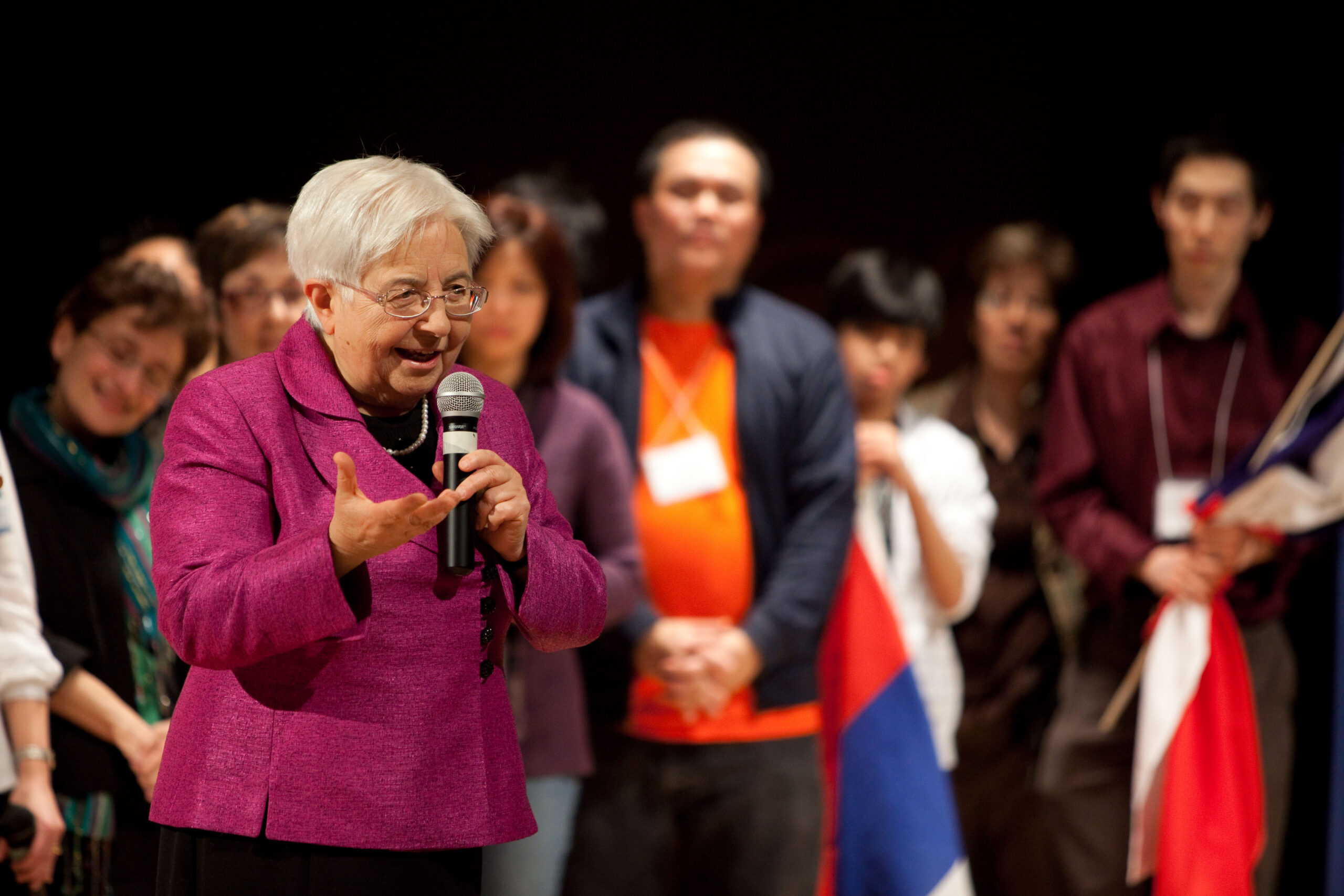
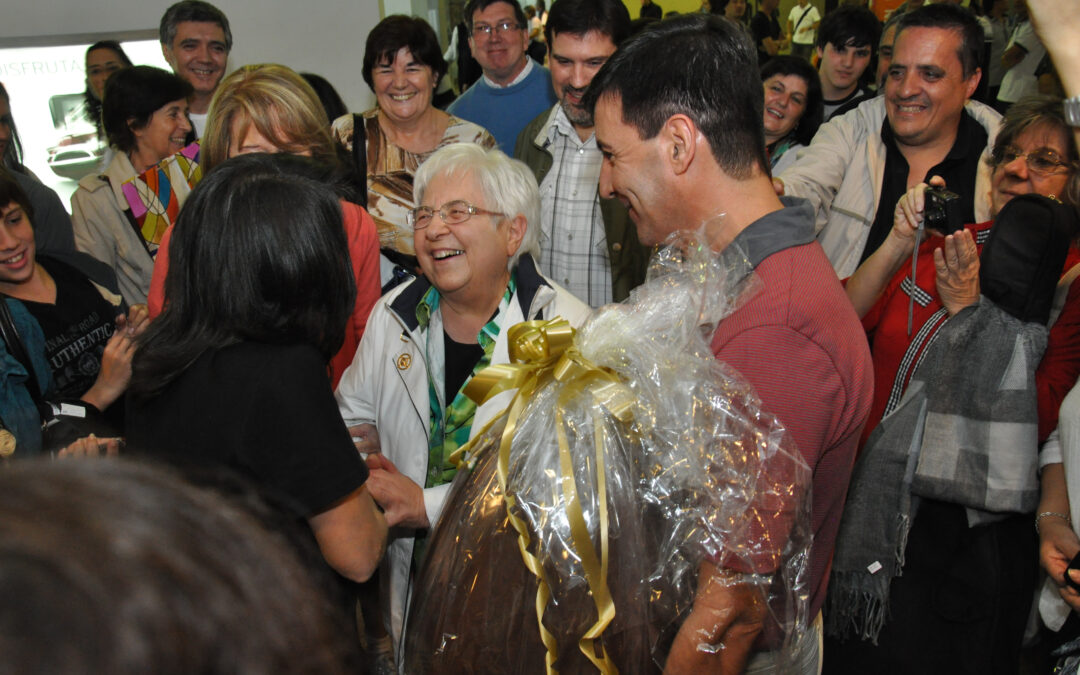
Maria Voce, the first president of the Focolare Movement (Work of Mary) after the foundress, Chiara Lubich, died yesterday at the age of 87 at home, in Rocca di Papa (Italy), surrounded by the affection and prayers of many.
This was announced yesterday evening by Margaret Karram, the current President to all those who belong to the Focolare Movement in the world.
In a message, Margaret went on to express the immense suffering that Maria Voce’s departure has brought about. She also expressed the fraternal and filial bond that bound them both together. “As the first president of the Focolare Movement after our foundress, she was able to take ahead with intelligence, farsightedness and the necessary determination the difficult transition of our Movement from its foundation to the post-foundation phase. She was able to combine her inspiring faithfulness to the Charism of Unity with the courage to deal with the many challenges of a worldwide association like ours, which operates on so many levels of human, social and institutional life.
Maria Voce received the name “Emmaus” as a life programme from Chiara Lubich, and it also became the programme of her government: to journey together, in a synodal way – and regardless of the questions and uncertainties that may emerge along the way, trusting in the presence of God in the midst of his people.
When I succeeded her as president of the Focolare Movement in 2021, she always accompanied me with a discreet but ever-present closeness and with her advice so full of Wisdom. In addition to her spiritual, theological and juridical preparation, she was also blessed with a deep and welcoming humanity and an engaging humour that was always respectful. Her human and sapiential calibre has been acknowledged by the most varied religious and civil authorities: from Pope Benedict XVI and Pope Francis; from the leaders of the various Churches to representatives of other religions and cultures.
A few hours before her departure to the next life, Jesús Morán and I were able to visit her for one last time. She was serene. I am consoled by the thought that waiting for her in heaven is the Virgin Mary, to whom she was closely linked by a very deep, and I would say existential, relationship.”
Jesús Morán, who lived alongside Maria Voce during the first six years of his service as Co-President of the Focolare Movement, recognises that with her election a new stage has begun for the Focolare Movement. He writes: “Emmaus, will go down in the history of the Movement not only as the first president of the post-Chiara Lubich phase, but also as the one who took the first innovative-organisational step of the Movement in the post-foundation era, in perfect creative faithfulness to the charism. In her first mandate, while Chiara’s absence was felt and could have caused discouragement, Emmaus travelled the world to strengthen the members and adherents of the Focolare communities in their commitment to a more fraternal and united world – in line with the charism of the foundress. In her second mandate, she began to prepare the Movement for the inevitable “crisis” phase appearing on the horizon, which Pope Francis identified as a great opportunity. And the Argentine Pope held her in great esteem. He pointed this out to her on every occasion. This demonstrates another of her characteristics: her ecclesial spirit.
I have always admired in Emmaus her simplicity, her inner freedom, her determination and her ability to discern, in which she was greatly aided by a legal background that she made her own.
Thank you, Emmaus, for saying a solemn “yes” at the most difficult time in our still short history. Mary will have taken you into her arms, presented you to her Son and together they will have carried you to the bosom of the Father who was the perennial source of your inspiration.”
I funerali si terranno lunedì prossimo, 23 giugno 2025, alle ore 15.00 presso il Centro internazionale dei Focolari a Rocca di Papa (Roma), via di Frascati, 306 – Rocca di Papa (Roma).(*)
Stefania Tanesini
Biographical information
Maria Voce was born in Ajello Calabro (Cosenza – Italy) on the 16th of July 1937, the first of seven children. Her father was a doctor and her mother, a housewife. In her final year of university studies in law in Rome (1959), she met a group of young focolarini at university and began to follow their spirituality. After finishing her studies, she practised law in Cosenza, becoming the first woman lawyer in the city’s court. She later studied theology and canon law.
In 1963, she was called by God to follow Chiara Lubich’s path, to which she responded with immediacy. In the Movement, Maria Voce is known as “Emmaus”, a name that refers to the well-known episode of the two disciples walking with Jesus after the resurrection. She herself describes how Chiara proposed it to her: “Chiara, confirmed an intuition that I had strongly felt within: that my life was to be spent so that those who had the opportunity to meet me would experience Jesus in the midst.” From that moment on, her commitment was to build bridges of unity, to the point of deserving God’s presence among people.
From 1964 to 1972 she was in the Focolare communities in Sicily (Italy) in Syracuse and Catania and from 1972 to 1978 she was part of Chiara Lubich’s personal secretariat.
In 1977 Chiara Lubich made an important visit to Istanbul (Turkey) where for years she had cultivated a special relationship with the Ecumenical Patriarchate of Constantinople. During those years, Maria Voce was in the focolare in that city, and she recalls: “It was a strong experience, both for the precious contacts with the various Churches, with Islam, and also because we felt that only Jesus among us made us strong when faced with the many problems of that land.”
In Istanbul, she established ecumenical relationships with the then Patriarch of Constantinople Demetrius I and numerous Metropolitans, including the current Patriarch Bartholomew I, as well as representatives of the various Churches.
In 1988 Chiara asked Emmaus to return to Italy to work at the International Centre in Rocca di Papa and for the Abbà school, the Interdisciplinary Study Centre of the Focolare Movement, of which she became a member in 1995 as an expert in Law. Since the year 2000 she has also been co-responsible for the International Commission of “Communion and Law”, a network of professionals and scholars involved in the field of Justice. From 2002 to 2007 she collaborated directly with Chiara in updating the General Statutes of the Movement.
On the 7th of July 2008, a few months after Chiara Lubich’s death, she was elected president of the Focolare Movement, reappointed for a second term on the 12th of September 2014. The style of her presidency has always been to “prioritise relationships” and to work towards the goal for which the Movement was born: to seek unity at all levels, in all fields, by following the path of dialogue. She has repeatedly emphasised how important dialogue is. “If there is an extremism of Violence,” she said in 2015 at the United Nations, in New York, “now we are responding in the same radical way, but structured differently, that is, with the extremism of dialogue.”
Numerous visits were made to all the continents to meet with the Movement’s communities spread around the world and to maintain contacts with civil and ecclesiastical, cultural and political, ecumenical and interreligious leaders. These were important steps to strengthen the bonds of friendship and collaboration established by the Focolare Movement and to encourage developments on the path of fraternity between peoples.
During her presidency, both with Pope Benedict XVI and Pope Francis, Maria Voce had meetings and audiences where expressions of esteem and fraternal affection emerged on both sides. On the 23rd of April 2010, Pope Benedict XVI received her in private audience. Referring to the spirituality of the Focolare Movement, the Pope spoke of a “charism that builds bridges, that creates unity” and invited the Focolare Movement to continue in its activities with ever deeper love and in striving for holiness. In October 2008, she participated and spoke at the Synod of Bishops on “The Word of God in the life and mission of the Church”. On the 24th of November 2009 Pope Benedict appointed her as Consultor of the Pontifical Council for the Laity and on the 7th of December 2011 as Consultor of the Pontifical Council for Promoting the New Evangelisation.
On the 13th of September 2013, Pope Francis received her in audience together with the then Co-President Giancarlo Faletti. About that moment, Emmaus remembers, “He immediately received us with a great welcome. He made me feel at home. I felt a great joy, as if I were standing in front of a father, but first and foremost he was a brother. I felt like his sister, and this sense has always remained.”
And on another occasion, she said, “Pope Francis has always encouraged us to go ahead, to welcome the signs of the times in order to make the charism relevant today, received for the good of many people and giving joyful witness to it”. One of these occasions was the Pope’s visit to the international little town of Loppiano (Florence, Italy) in 2018. Maria Voce was there to welcome him: “Holy Father, we have a very high goal, we want to “aim high”. We would like to make mutual love the law of coexistence, which means experiencing the joy of the Gospel and feeling that we are protagonists of a new page of history.”

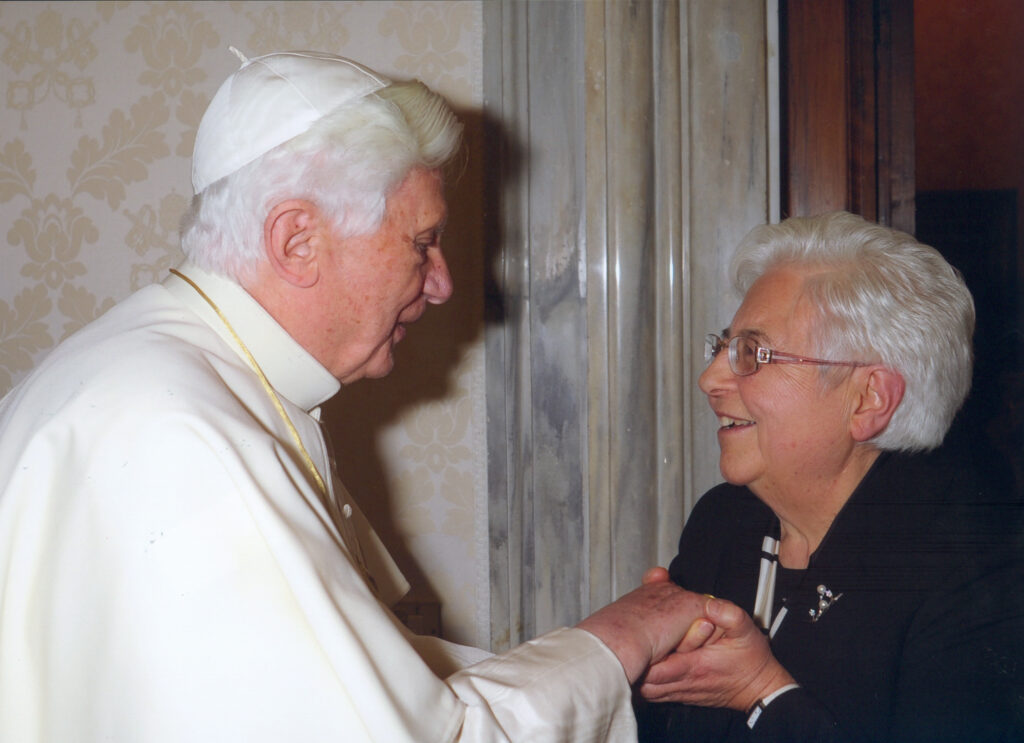
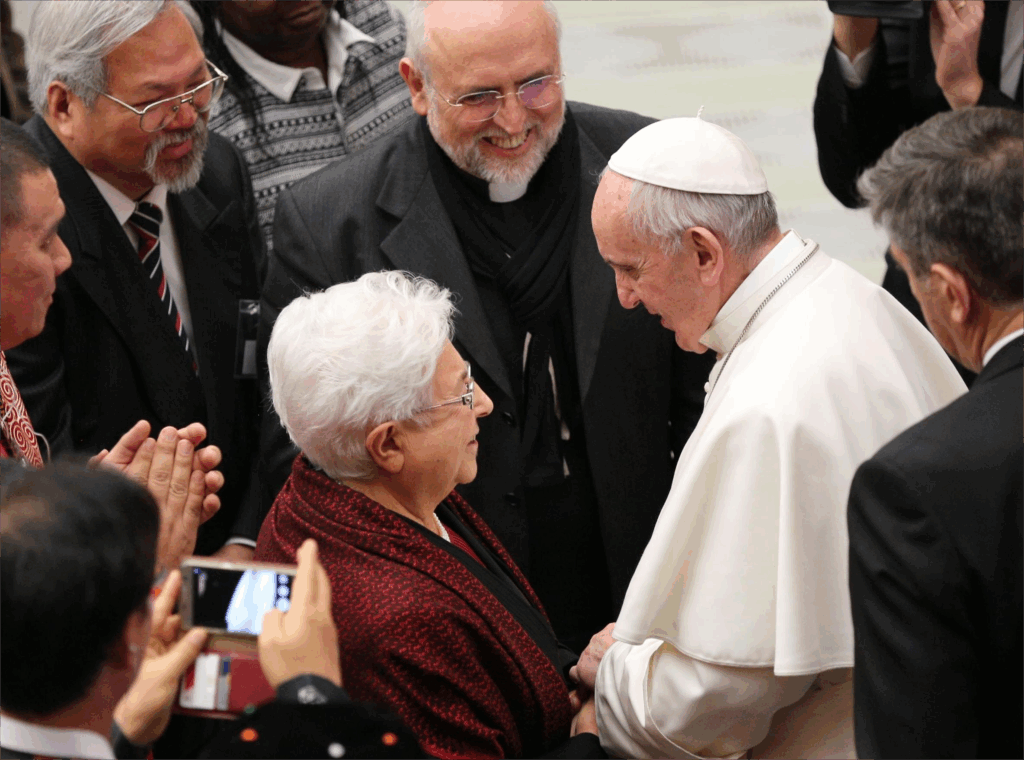
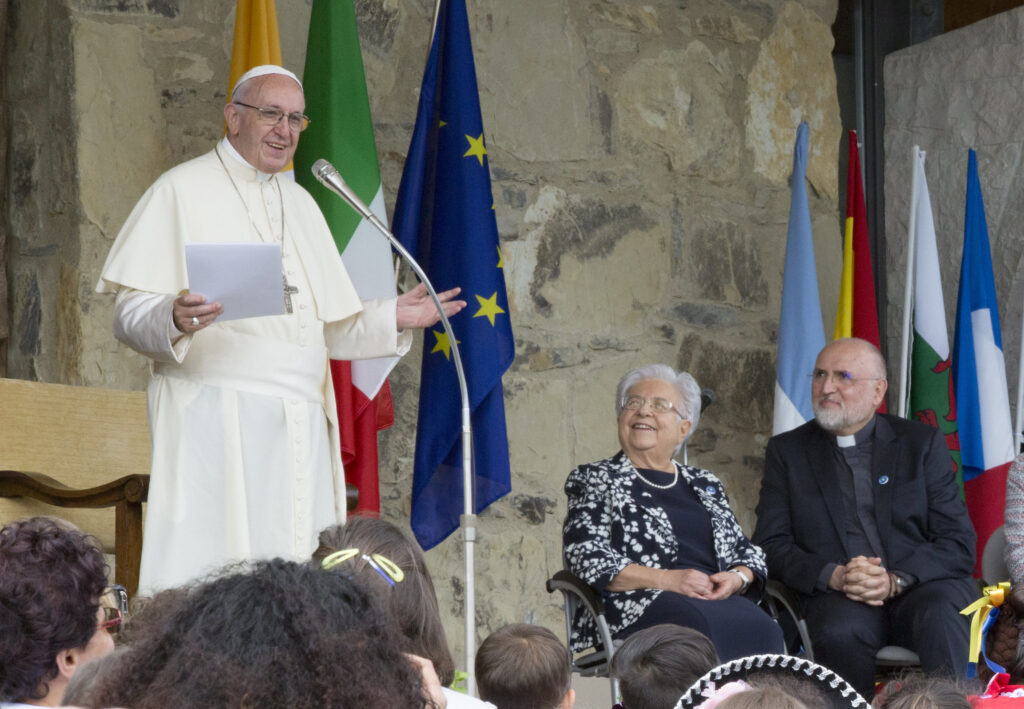
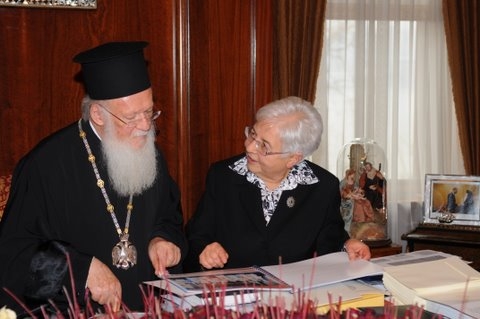
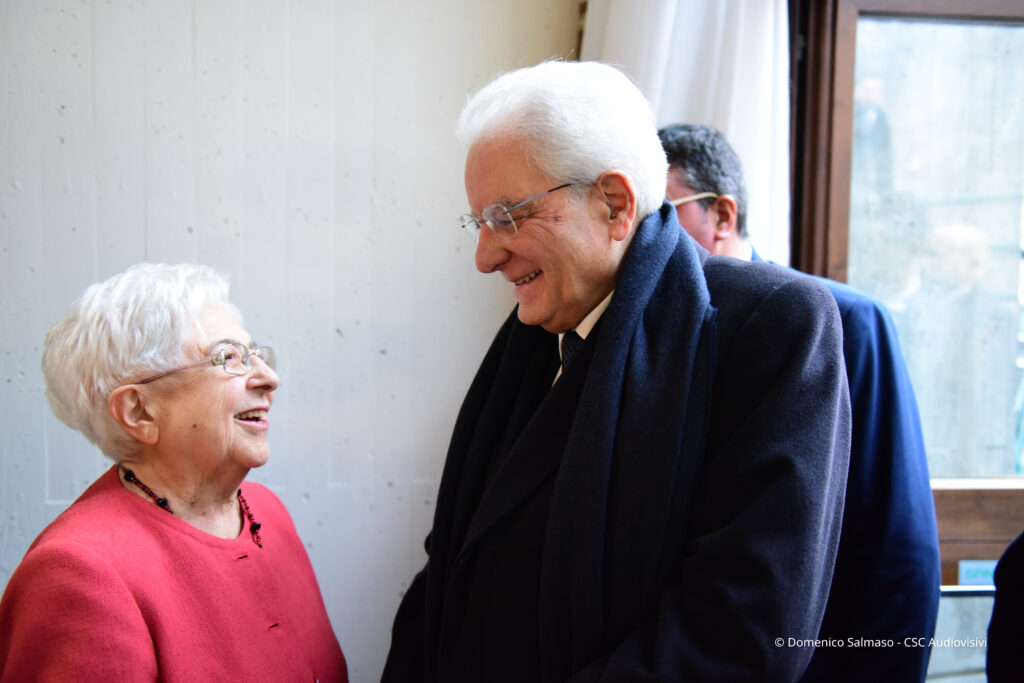
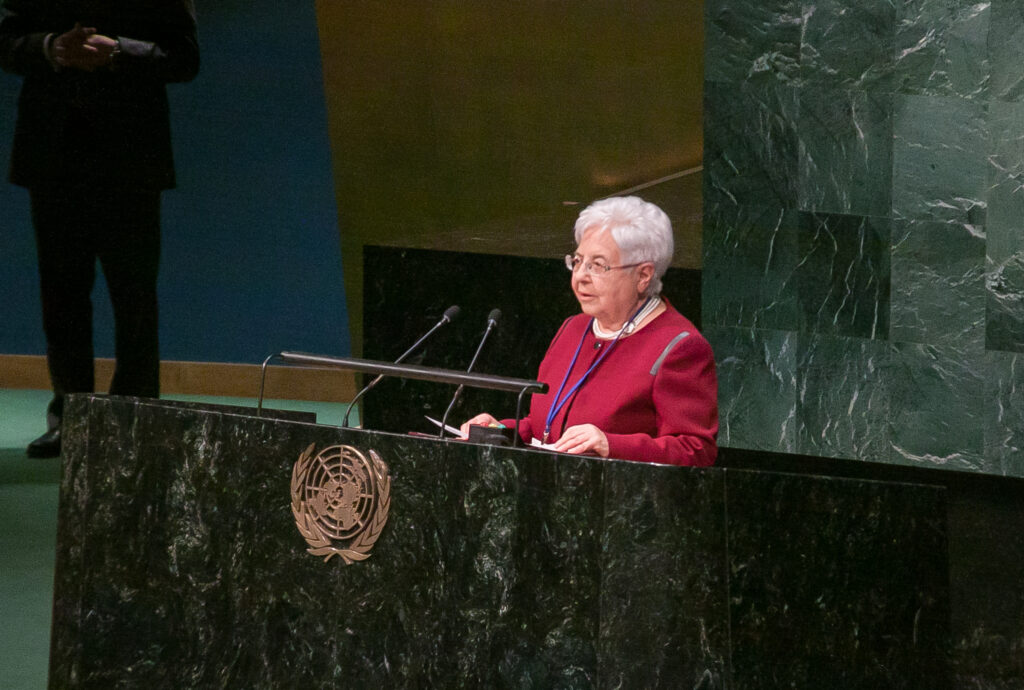
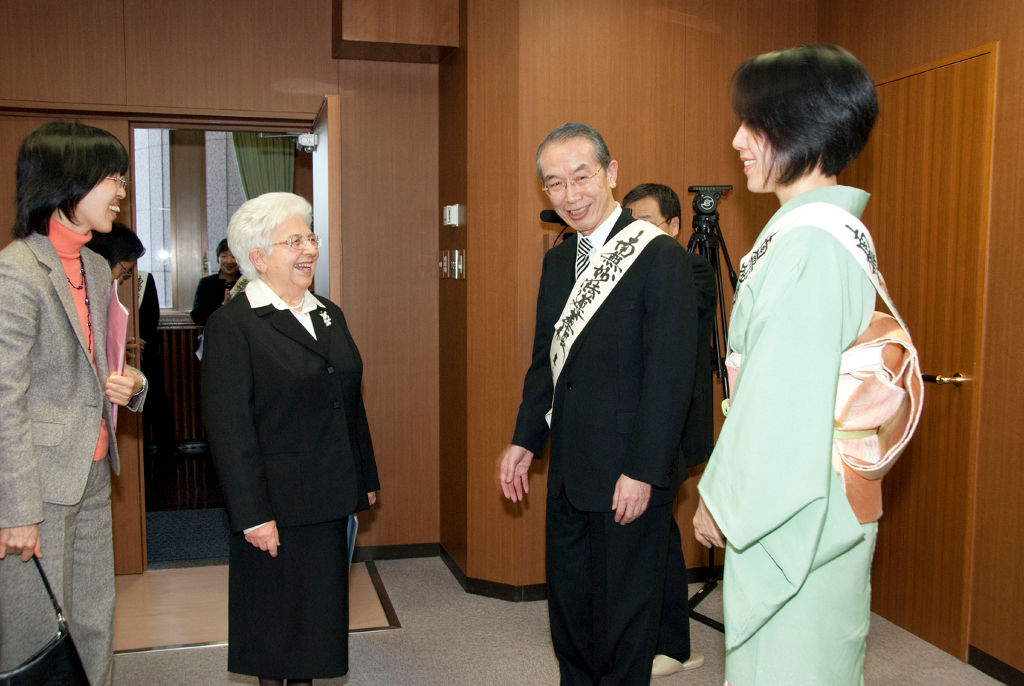
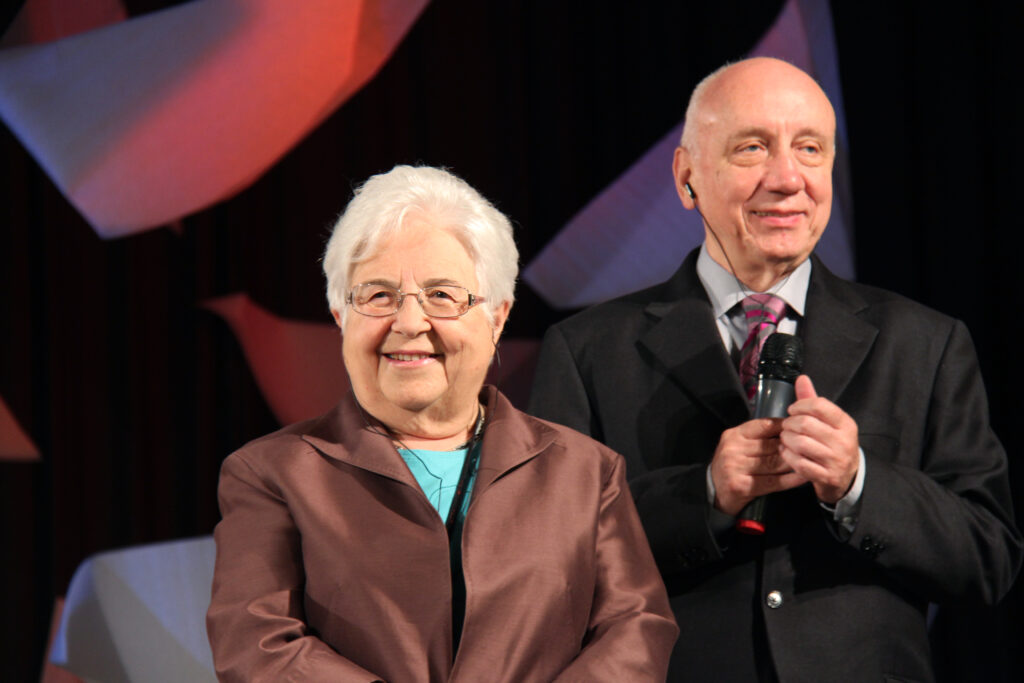
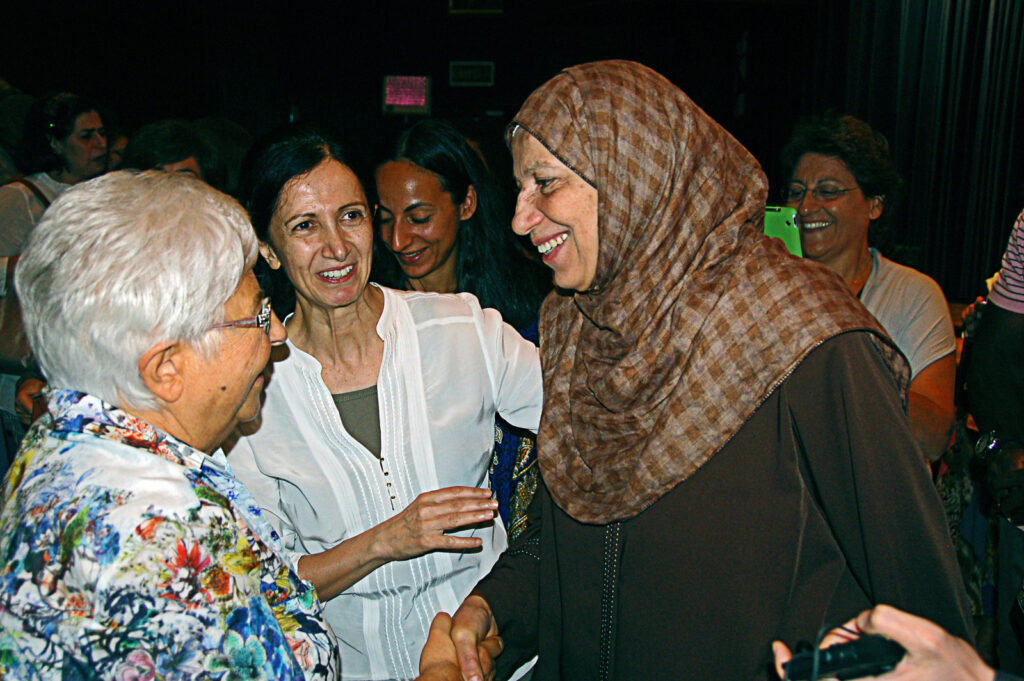
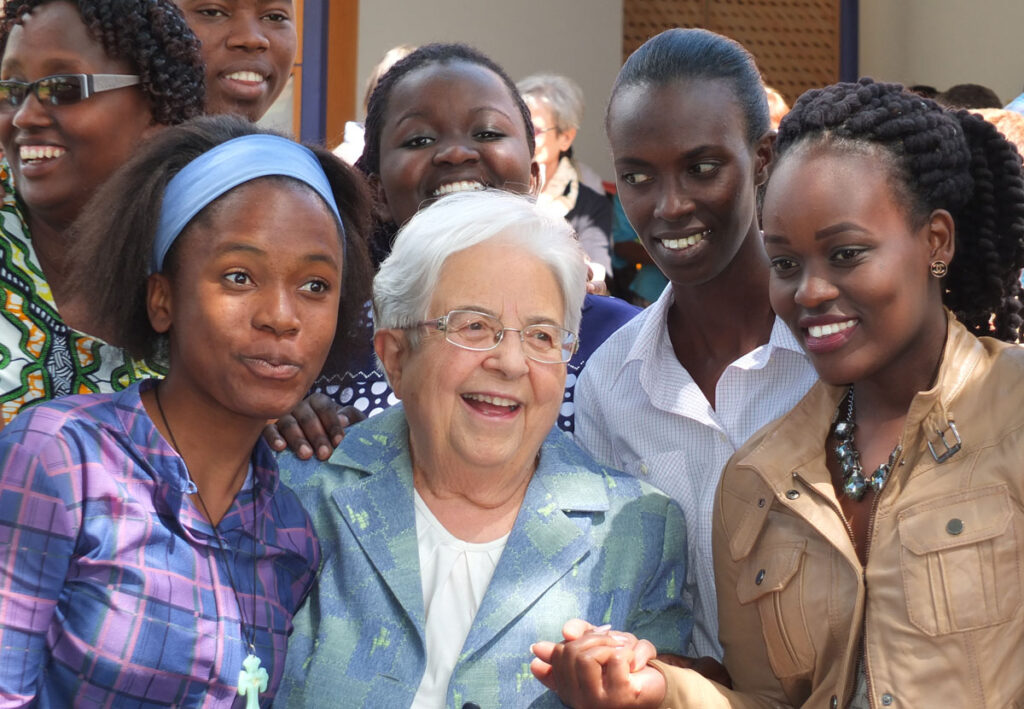
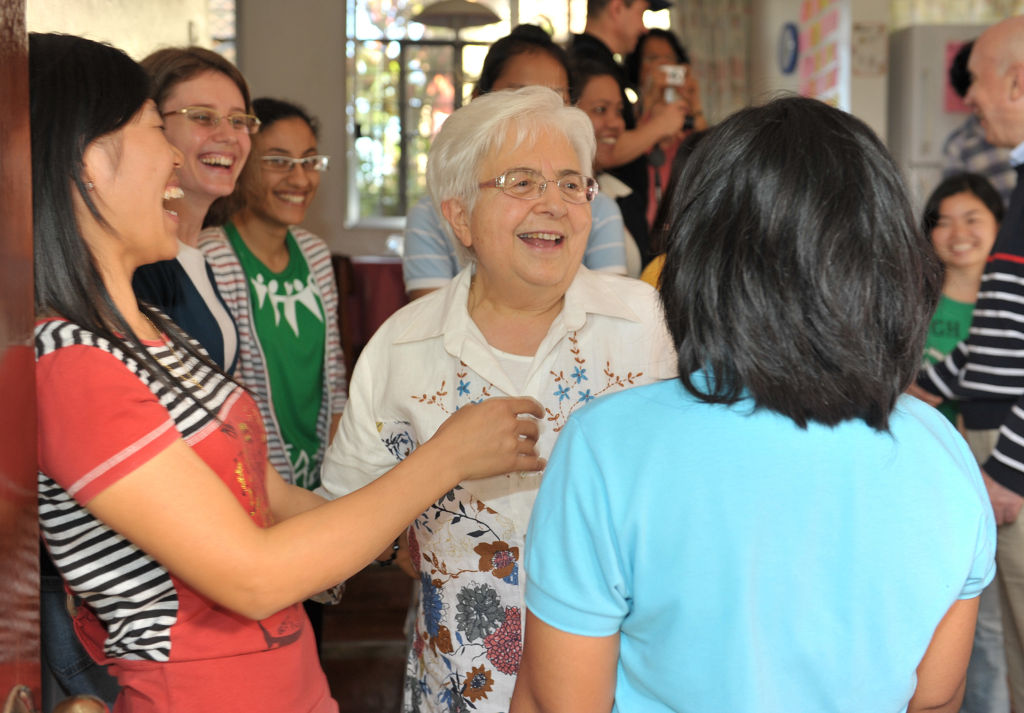
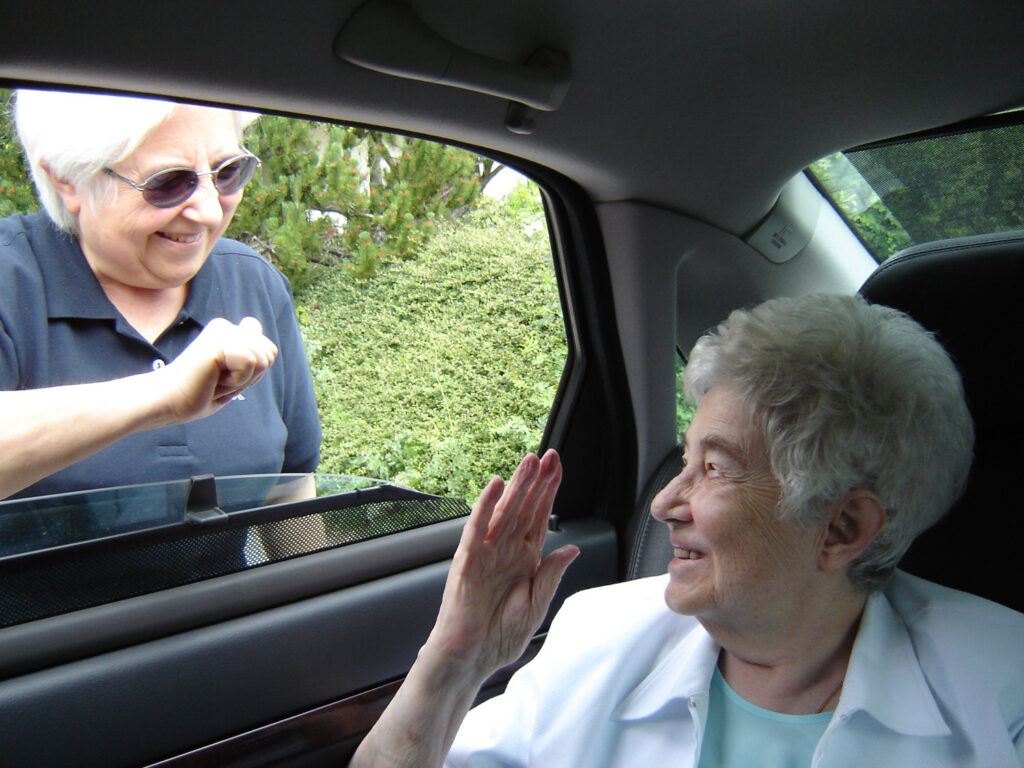
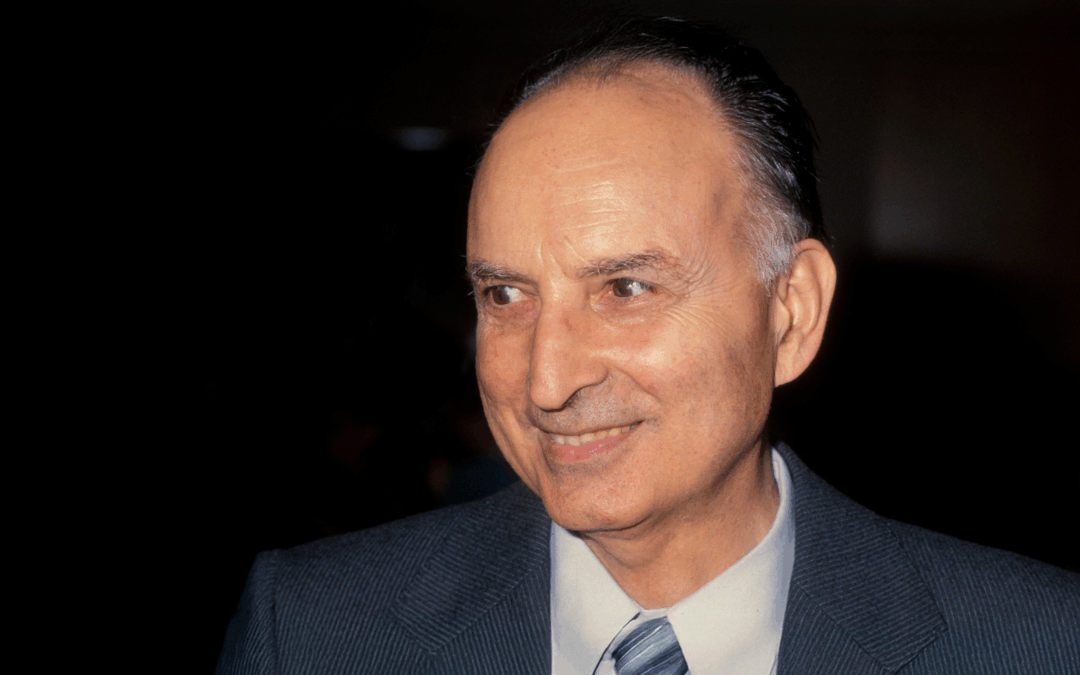
After the publication of the first part of Don Foresi’s biography dedicated to the initial period of his life, the second part entitled: “The rule and the excess” (published by Città Nuova), of the three planned, which deals with the years from 1954 to 1962, was also published. What do you think emerges in this volume as a characteristic note of this period of Foresi’s life?
A note that deeply characterizes the life and experience of Pasquale Foresi in the years indicated, can be expressed in this way: he was a free spirit, a person driven by a creative tension between charism and culture, moved by the need to spiritually and practically translate Chiara Lubich’s inspiration (the charism of unity) and the need, in a certain way, to give it theological, philosophical and institutional depth, in an ecclesial context that was still largely pre-conciliar. The book describes him very well as constantly engaged, together with Lubich, to “embody” the charism in forms understandable to the Church of the time and to the cultural and secular world in general. In this sense, we might define him, not only as a co-founder, but also as an ecclesial interpreter of the charism, someone who sought to make it “explainable” in the language of the Church and who tried to be the bridge builder between the mystical dimension of Lubich and classical theology, making it accessible to many without watering it down.
At the same time Foresi was an atypical intellectual and an original thinker. Although he did not leave any major systematic works (he did not see this as his particular task), he had a strong impact on the development of the Work of Mary (Focolare Movement), during the period of time described in the volume. This second book documents a dynamic existence, marked by a sense of urgency, as if the words of the Gospel proper to the development of the Focolare Movement had to be incarnated “immediately”, without delay.
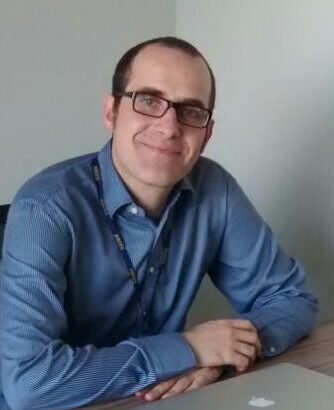
“Don Foresi, a free spirit, a person driven by a creative tension between charism and culture”.
Our interviewee, Prof. Marco Luppi, researcher in Contemporary History at Sophia University Institute in Loppiano, Italy
The 600 plus pages of the text deal not only with the events that concern the life of Foresi in the period under review, but also outline the life and history of Chiara Lubich and the Focolare Movement of those years, also focusing on stories and episodes in which Foresi was not present, as the author himself states. Why do you think the author made this editorial choice?
Zanzucchi includes events and developments not directly experienced by Foresi because his story is inseparable from the history of the Focolare Movement. Telling the context, the protagonists and the collective dynamics allows us to grasp the meaning of Foresi’s contribution, placing it within the living fabric of a communal experience. As he clearly states in his introduction, Zanzucchi views Foresi not only as a key player, but as a co-founder, that is, an essential and foundational element of the Focolare Movement. Consequently, Foresi’s biography is inseparable from the biography of the Movement. In other words, the author adopts an approach that we could define as an “immersive biography”: not a simple individual reconstruction, but a relational and contextual narrative, where the meaning of Foresi’s role emerges through a living dialogue with others (Chiara Lubich, Igino Giordani, ecclesial personalities, etc.) and with the collective history of the Movement.
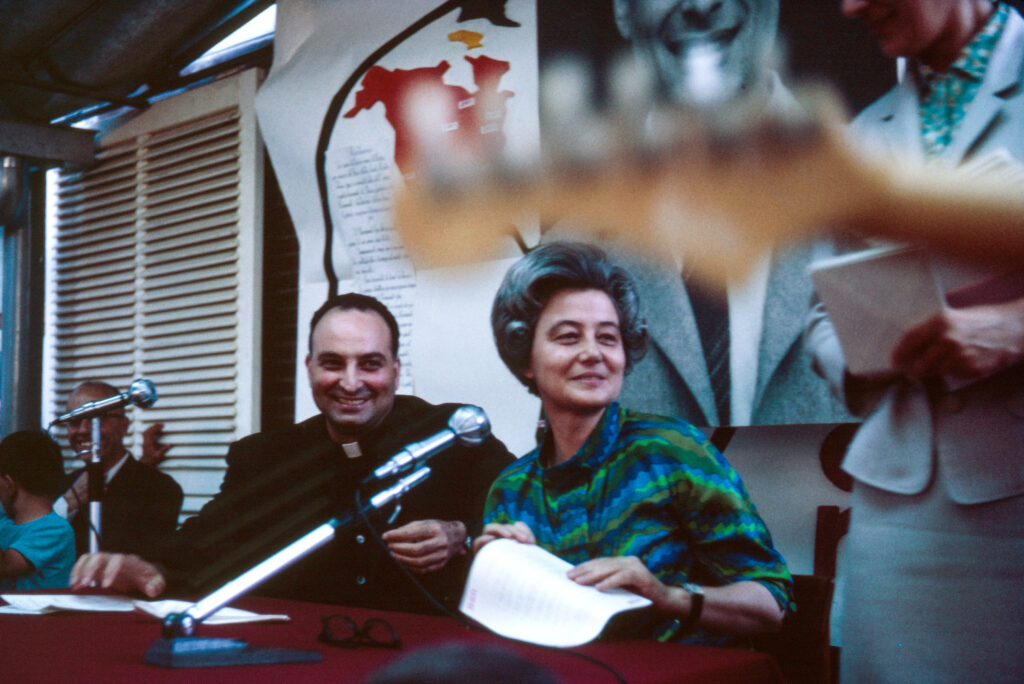
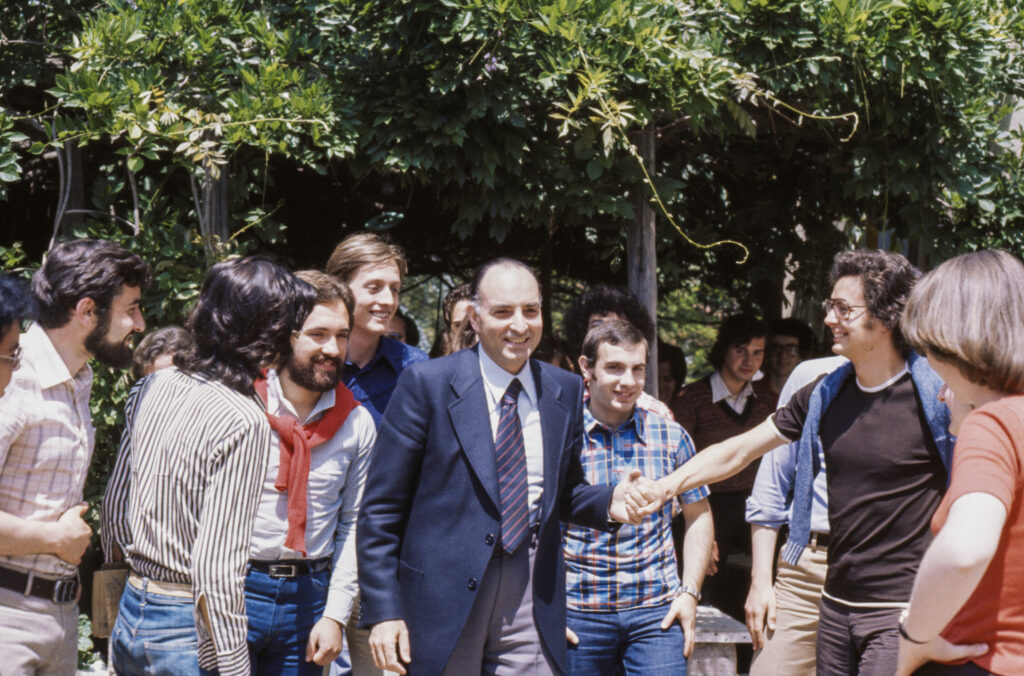
This work of Michele Zanzucchi is the first biography of Foresi. What aspects of Foresi’s life do you think deserve further study and historical investigation?
Zanzucchi often likes to say that he is not a pure historian, but rather a careful and conscientious storyteller and communicator and that therefore at times he has allowed himself some interpretative freedom, in order to clarify some passages that are less explicit. However, this is certainly a very important work and a first effort to give us a full view of the personality and experience of Foresi. It is one perspective and others will surely follow, all animated by that same critical spirit, open to multiple interpretations, which must inform the reconstruction of the history of the entire Focolare Movement and its key figures. I can mention three of the many insights that could be explored in future research on Foresi. First, his theological and philosophical thought. Zanzucchi points out that Foresi was not an academic theologian, but a “cultural visionary”, whose output is scattered in articles, speeches and notes. There is no single systematic presentation of his thought on key subjects such as the Church, the sacraments, the faith-reason relationship, etc. In addition, the originality of his ecclesiological thought should be studied, which anticipated some insights which later emerged in Vatican II. A second topic could be on the “political” role of Foresi and his relationships with the Roman ecclesiastical world. The author repeatedly mentions Foresi’s connections with the Vatican curia and with some ecclesiastical personalities. However, it is still not clear how much influence Foresi had in post-war political or ecclesial mediations, so this too would merit further exploration, especially during moments of tension with the hierarchy. Finally, a third, compelling front could be the editorial period and the “cultural laboratory” of Città Nuova. Zanzucchi underlines Foresi’s role as founder, director and inspirational force behind the “Città Nuova” magazine. What kind of “culture” did Foresi endeavour to promote? How did it position itself compared to other Catholic newspapers (Civiltà Cattolica, L’Osservatore Romano, Il Regno)? One day, a full monograph on Foresi’s work as a publisher and journalist in the context of 20th-century Catholic media will be needed.
a cura di Anna Lisa Innocenti
Photo: © Archivio CSC audiovisivi
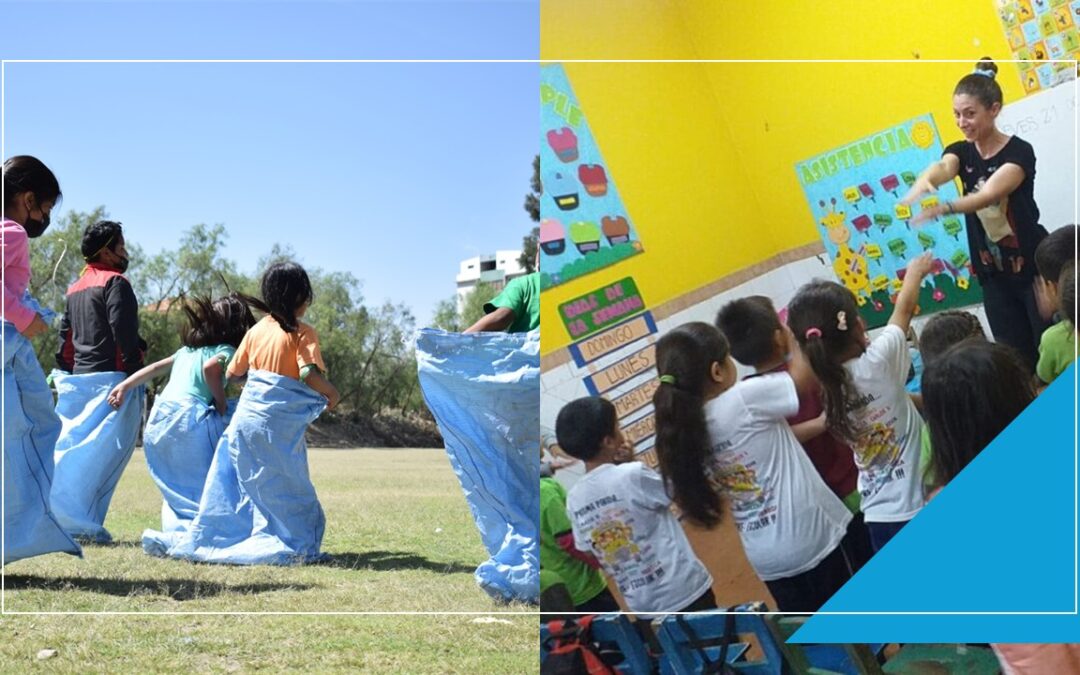
There are places in the world where fraternity is cultivated with a purpose. One of these is MilONGa, a project that has established itself as a key initiative in the field of international volunteering, aiming to promote peace and solidarity through concrete actions.
MilONGa offers a concrete alternative: to experience solidarity firsthand through experiences that transcend cultural, social and geographical boundaries.
Its name, which stands for “Mille organizzazioni non governative attive” (Thousand Active Non-Governmental Organizations) is much more than a project. It is a network that connects the youth with organizations in various parts of the world, giving them the opportunity to actively engage in social, educational, environmental, and cultural initiatives. Since its beginning, the program has grown by weaving a global community that recognizes common values: peace, reciprocity and active citizenship.
What distinguishes MilONGa is not only the diversity of its destinations or the richness of its activities but the type of experience it offers: a deep immersion in local realities, where each volunteer comes not to “help” but to learn, exchange, and build together. It is a comprehensive training journey that transforms both those who experience it and the communities that welcome them.
The countries where these experiences can take place are as diverse as the youth who participate, covering various latitudes: Mexico, Argentina, Brazil, Bolivia, Colombia, Ecuador, Paraguay, Uruguay, and Peru in America; Kenya in Africa; Spain, Italy, Portugal, and Germany in Europe; Lebanon and Jordan in the Middle East.
In each of these places, MilONGa collaborates with local organizations committed to social development and building a culture of peace, offering volunteers service opportunities that have a real and lasting impact.
Behind MilONGa is a solid network of international partnerships. The project is supported by the AFR.E.S.H.,initiative co-financed by the European Union, which allows it to strengthen its structure and expand its impact. It is also part of the New Humanity ecosystem, an international organization committed to promoting a culture of unity and dialogue among peoples.
A Story that Leaves a Mark
Francesco Sorrenti was one of the volunteers who traveled to Africa with the MilONGa program. His motivation was not just the desire to “help,” but a deeper need to understand and connect with a reality he felt was distant. “It was something I had inside me for years: a deep curiosity, almost an urgency to see with my own eyes, to try to get closer to a reality that felt far away,” Francesco recounts about his experience in Kenya.
His experience in Kenya was marked by moments that transformed him. One of these was a visit to Mathare, a slum in Nairobi. “When one of them told me: ‘Look, this is where my parents live. I was born here, my children were born here. I met my wife here and we will probably die here,’ I felt an overwhelming sense of helplessness. I realized that before doing anything, it was necessary to stop. That I wasn’t there to fix things, but to observe rather than turn away.”
He also experienced moments of joy while working with the children at a local school. “The joy of these children was contagious, physical. There was no need for many words: just being there, playing, sharing. It was then that I understood that it’s not about doing great things, but simply about being present,” he shares.
Two years after his experience, Francesco still feels its impact. “My way of seeing things has changed: I now value what really matters more and have learned to appreciate simplicity. This experience has also left me with a form of strength, an inner tenacity. You carry a kind of resilience, like what I saw in the eyes of those who, at dawn, wanted to do everything even if they had nothing.”
Meetings that Multiply Commitment
In April 2025, MilONGa participated in the international congress “Solidarity in Action, Builders of Peace” held in the city of Porto, Portugal. The meeting, jointly organized by AMU (Action for a United World), New Humanity and the Focolare Movement of Portugal, brought together young leaders from around the world linked to the Living Peace International and MilONGa programs.
For three days, Porto was transformed into a laboratory of dialogue and action, where young participants exchanged experiences, shared good practices, and built common strategies to strengthen their role as peace agents. MilONGa played a key role, not only through the active participation of its volunteers but also by creating synergies with other youth networks engaged in social transformation.
One of the most significant moments of the congress was the collaborative workshop space, where participants imagined and designed concrete projects with local and global impact.
MilONGa is defined not only by what it does but by the horizon it proposes: a fairer, more united and more humane world. A world where solidarity is not a slogan but a daily practice; where peace is not a utopia but a shared responsibility.
Manuel Nacinovich